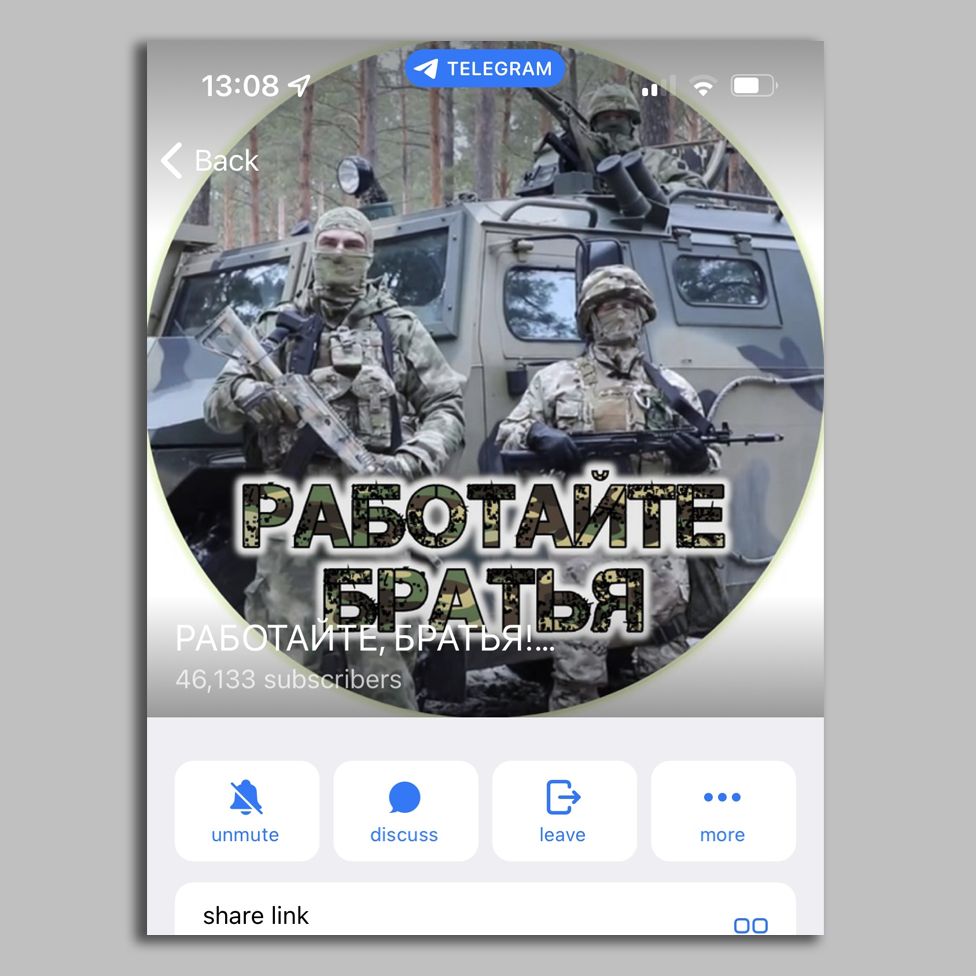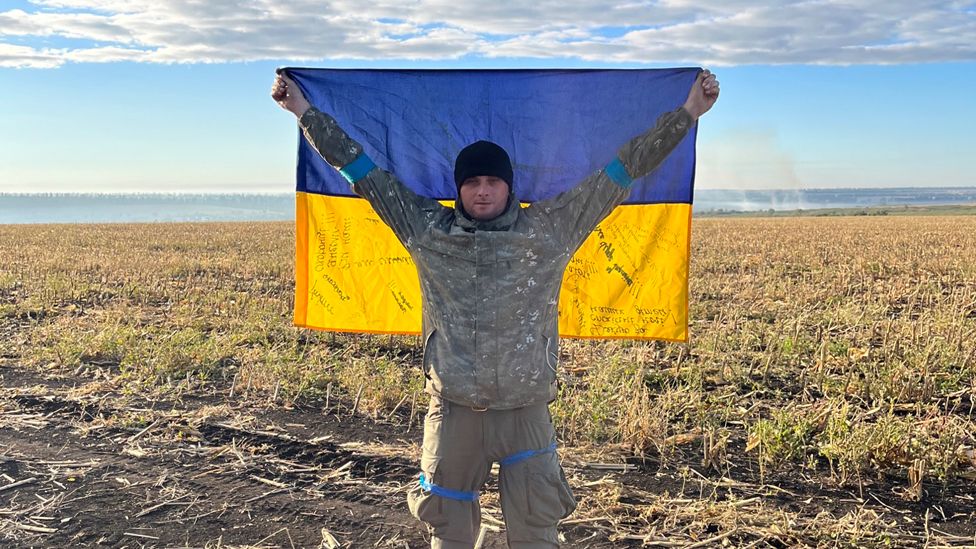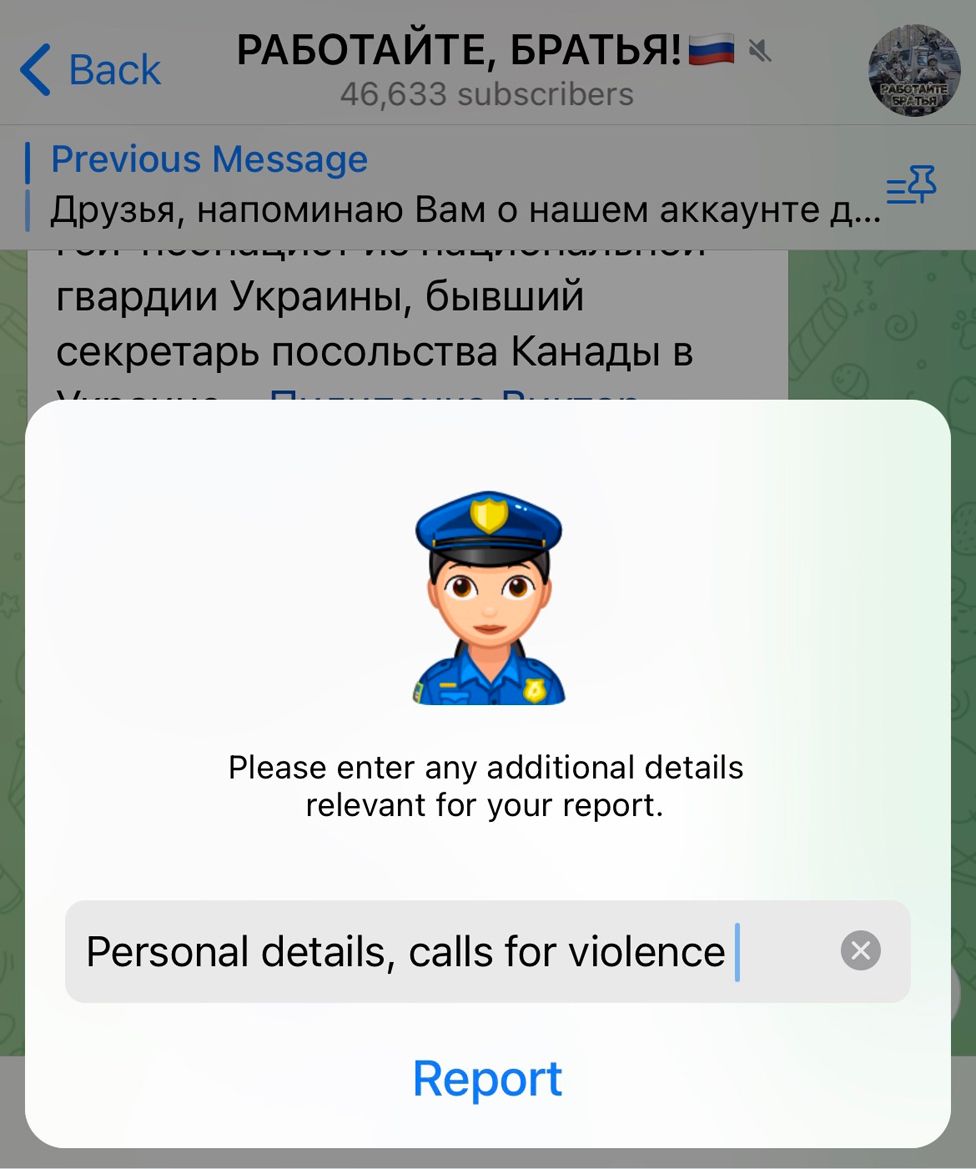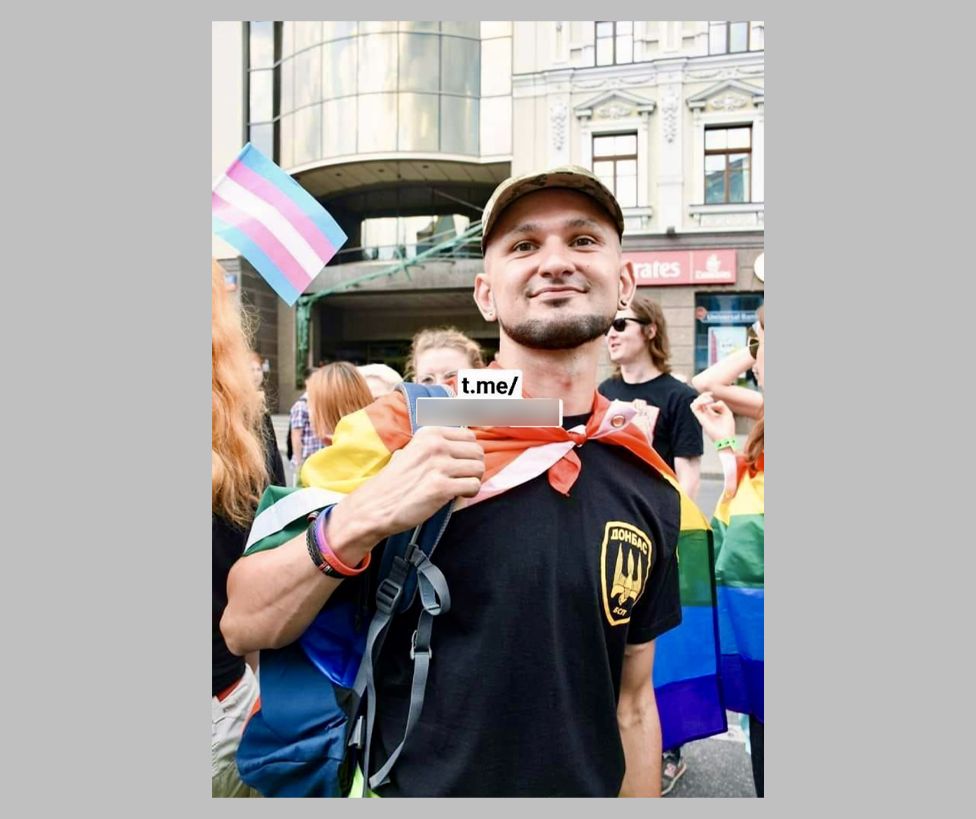Ukrainian soldiers and pro-Ukrainian activists are receiving death threats, threats of rape against their relatives and other horrific abuse after systematic sharing of their personal information on pro-Kremlin social channels, a BBC investigation has found.
The “doxxing” – leaking of private information online – is apparently intended to demoralise the fighters.
‘Hundreds of messages with threats’
“We were among those few citizens who tried to physically oppose the Russian invasion of our town,” recalls Oleksii from Berdyansk, a Ukrainian port city that has been occupied by Russian forces since the first days of the war. Oleksii and his wife Anastasiya threw a Molotov cocktail at a Russian armoured vehicle driving through their city. They immediately went into hiding.
“We knew Russians would be searching for us,” says Anastasiya. “We tried not to use our phones, so we couldn’t be tracked. But when we turned them on, we saw hundreds of messages with threats from strangers, saying they would hang us, they would burn us with our own Molotov cocktails. It was an absolute nightmare.”
Russian state TV reported on the couple’s actions, and revealed their identities. On the same day their birth dates, home addresses, telephone numbers, tax information, social media accounts and even their car’s number plate were posted on Telegram, in a pro-Kremlin channel called “Work, brothers”. The account has more than 46,000 subscribers.
The Telegram post called Oleksii, who used to be a member of the right-wing organisation “Right Sector”, and Anastasiya “Nazis”, an insult often thrown at Ukrainians by Russian state media.
The couple would sometimes receive more than 1,000 offensive messages a day.
“All my social media accounts were full of abuse. I tried not to read them,” recalls Anastasiya.

“Where are the pictures of your dead bodies?” read one of the messages. Another said: “We know where you live.”
“It was terrifying,” says Anastasiya, “When you go to bed you can’t sleep because you’re listening to every noise, wondering if somebody has come for you.”
After two months in hiding, they managed to escape to Ukrainian-controlled territory.
Private information – at the click of a button
The BBC has found that the “Work, brothers” channel and another pro-Russian channel – “Tribunal” – has shared the private data of almost 300 Ukrainian activists, soldiers and their relatives, to more than 120,000 subscribers.
Both channels were created on 1 March 2022; the sixth day of the Russian invasion of Ukraine. Alongside private information, the channels regularly promote Russian disinformation and pro-Kremlin narratives.
Oleksandr, a Ukrainian soldier currently fighting on the front line in eastern Ukraine, recalls how in August he discovered that a video of his battalion destroying a Russian armoured vehicle was posted on Telegram, alongside his date of birth, phone number and email address.

Image caption, Oleksandr was on the front line when he heard his flat had been burgled
The post was published in “Work, brothers”, and said that Oleksandr’s family was living in Nova Kakhovka, a town in the Kherson region, which is occupied by Russian troops.
“In the texts that I received, they called me a ‘bloody khokhol’ [a derogatory Russian term for Ukrainians] and threatened to find my mum and sister in Nova Kahovka and rape them,” said Oleksandr. His mother died in 2015 and his sister had moved to Turkey seven years ago.
His home address was also published. Soon afterwards, his flat was broken into and his possessions stolen.
Who is behind the doxxing channels?
The BBC has tracked down some of those closely associated with the Telegram channels.
Olesya Orlenko, 41, from Moscow, describes herself as a historian and journalist. She was one of the founders of an online project called “Tribunal”, which runs a website and the Telegram channel we have been monitoring. In the past she has promoted this work on Russian state media.
Ms Orlenko claims she is no longer associated with Tribunal, but uses familiar Kremlin narratives when describing the objectives of the project.
“It was created to collect information about Ukrainian Nazis [a term used by Russian state media] who committed crimes during the conflict in Donbas [in eastern Ukraine], so that later this information could be used by Russian or international courts,” she said.
She denied she had anything to do with the sharing of soldiers’ personal details. However, she was still one of those in charge of Tribunal when the doxxing started on its Telegram channel.
The BBC has also contacted one of the administrators of the chat group associated with the channel “Work, brothers”.
Tatyana is 39 and an office worker from Podolsk in the Moscow region. She told the BBC that in her free time she “helps ‘Work, brothers’ as a volunteer”.
She denied seeing Ukrainian soldiers’ personal information and threats on the channel. We sent Tatyana a screenshot with a profile of a Ukrainian soldier and her comments below the post. She stopped replying to us.
Systemic violence
“These channels break Telegram’s terms of service because they promote violence in a systematic way”, says Julia Smirnova, a senior analyst at Institute for Strategic Dialogue focused on disinformation and online hate speech.
“They call for ‘punishing’ people whose data they publish, use hateful terms and slurs to describe them,” says Ms Smirnova. “The channels also publish posts that celebrate killings of Ukrainian military personnel or violence against people supporting the Ukrainian army.”

Image caption, We reported the posts that shared private data and calls for violence, but they are still accessible.
Telegram prohibits the promotion of violence on public channels. It also has an in-app reporting feature where users can flag violence and shared personal details.
Remi Vaughn, Telegram’s spokesperson, told the BBC that the company “actively moderates” the publication of private data and “diligently removes” content that breaches its terms of service.
To test this, we used the in-app feature to report 50 posts which included the personal information of Ukrainian soldiers and comments with clear calls for violence. A week later the posts and comments remained online.
This comes as no surprise to Viktor, another Ukrainian solider who had previously experienced harassment online for being an LGBT+ activist.
“I always reported such things to Telegram, but I’ve never heard back from them. There was no reaction at all,” he says.

Earlier this year, his personal details and pictures were again posted on Telegram. There were death threats in the comments, but what really angered him was that this time the abuse went further, and targeted his family.
“They shared addresses of my parents and even of my granny. They texted my sister. They even posted her address in Mykulichi that was occupied by Russians.”
The village is near Bucha, where dozens of civilians were killed by Russian troops.
“It’s good they posted it after the village was liberated. But what if they did it earlier?” says Viktor. “There were real cases when relatives of Ukrainian soldiers were shot dead. These people [who share it] and Telegram itself should be held to account.”
Source: BBC
